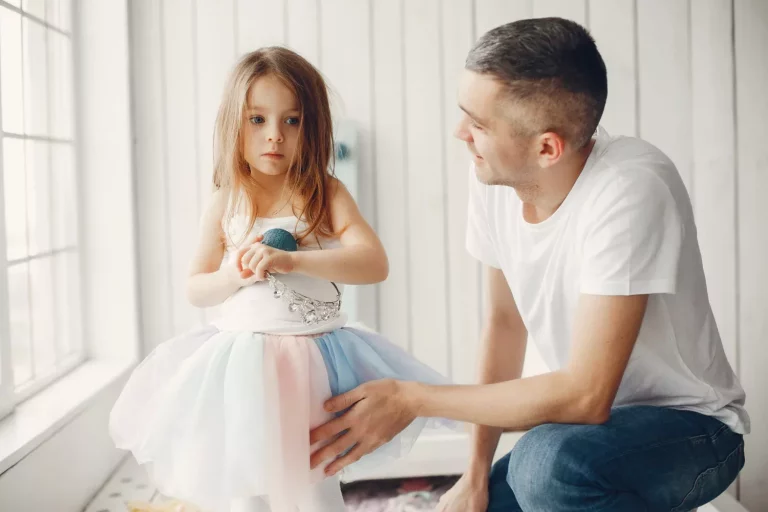Child Custody Mediation: Who Can Attend?
Have you ever wondered who can come to child custody mediation sessions? At TheBostonDivorceLawyer, we understand the importance of having the right people present during these meetings. Find out more about who can attend and why it matters in our latest article.
As stated in most state laws, parents or legal guardians can attend child custody mediation sessions. Other parties involved in the custody dispute, such as relatives or caregivers, may also be allowed to attend with court approval.
Definition
Mediation is a way to reach an agreement about what is best for the child without having a big fight.
Parents who are arguing about custody or visitation usually have to try mediation before going to court. This applies to both married and unmarried parents. The idea is to help parents settle things without needing a judge to decide for them.
Sometimes, other people might join the mediation sessions with the parents. Believe it or not, these can be lawyers, therapists, or other experts who can offer help and advice during the process.
The main goal of child custody mediation is to do what is best for the child. The mediator’s job is to help parents talk to each other and find an agreement that works for both of them. The hope is that by working together and focusing on the child’s needs, parents can find a solution that everyone is happy with.
Purpose
Child custody mediation aims to provide a safe and neutral space for parents to talk and agree on how to take care of their children. Here, parents can discuss what their children need and want, and make a plan that focuses on what’s best for them.
Any parent involved in a child custody dispute can go to mediation. This includes married or unmarried parents, and those who are divorcing or separating. Sometimes, grandparents or other family members caring for the children can also join the mediation process.
Often, the court requires parents to try mediation before they can have a custody hearing. Frankly, the goal is to help parents reach an agreement without a long and expensive court battle. Mediation allows parents to work together to create a parenting plan that suits their children’s needs and helps everyone move forward positively.
Eligibility
Most parents involved in a custody dispute can attend mediation sessions, including biological parents, adoptive parents, and legal guardians.
Sometimes, the court might require parents to go through mediation to reach a custody agreement. However, there are some situations where mediation is not suitable. For example, if there is a history of domestic violence between the parents, the court might find mediation unsafe. Also, if a parent cannot participate due to mental health issues or other serious problems, they might not be eligible for mediation.
To be fair, for mediation to work, both parents need to be willing and able to communicate effectively. If there are language barriers or other communication issues, special accommodations might be needed to ensure both parents can take part fully.
Benefits
The main aim of mediation is to help parents agree on what’s best for their child. With the help of a neutral third person, parents can talk better and make a co-parenting plan that suits their child’s needs.
Mediation can also benefit children. When parents solve their issues calmly, the home environment becomes less stressful. Kids do better when they have steady and consistent relationships with both parents. Mediation helps parents create a plan that considers their child’s specific needs, making sure their well-being is a priority.
On a serious note, mediation is especially useful for parents who struggle to communicate on their own. The mediator helps them have productive talks and find mutually agreeable solutions. Parents also learn valuable skills for solving conflicts in the future, leading to a better co-parenting relationship.
In general, mediation can help anyone involved in a child custody dispute. By working together to find common ground and make a plan that puts the child’s well-being first, parents can create a better and more peaceful environment for their child to grow and thrive.
Process
This process is usually optional, but sometimes a court might require it.
In most places, either parent, or both, can ask for mediation. Sometimes, other family members like grandparents or step-parents can also join. The purpose of mediation is to help parents talk to each other and agree on the custody and visitation of their child.
It’s important for both parents to participate honestly and listen to each other. The mediator will help guide the conversation and encourage parents to think about what’s best for their child.
Keeping it real, during mediation, parents should be ready to talk about different parts of their child’s life, like their schedule, school, healthcare, and other important issues. The mediator might also suggest different options and help parents find compromises to reach an agreement.

The Final Thoughts
Anyone directly involved in the child custody case can attend mediation, including the parents, their attorneys, and sometimes the children themselves.
What TheBostonDivorceLawyers is stressing the need for is, additionally, mediators, therapists, and other professionals may also be present to assist in facilitating productive discussions and reaching agreements. Ultimately, the goal of child custody mediation is to promote collaboration and find solutions that are in the best interest of the children involved.
References
- “Child Custody Mediation: An Annotated Bibliography” by Steven M. Sack and Jane C. Murphy, Family Law Quarterly, American Bar Association
- “Child Custody Mediation: Issues in Family Law” by Marian B. Bradsher, The University of Toronto Press
- “Mediating Child Custody Disputes” by Donald T. Saposnek, Jossey-Bass Publishers







